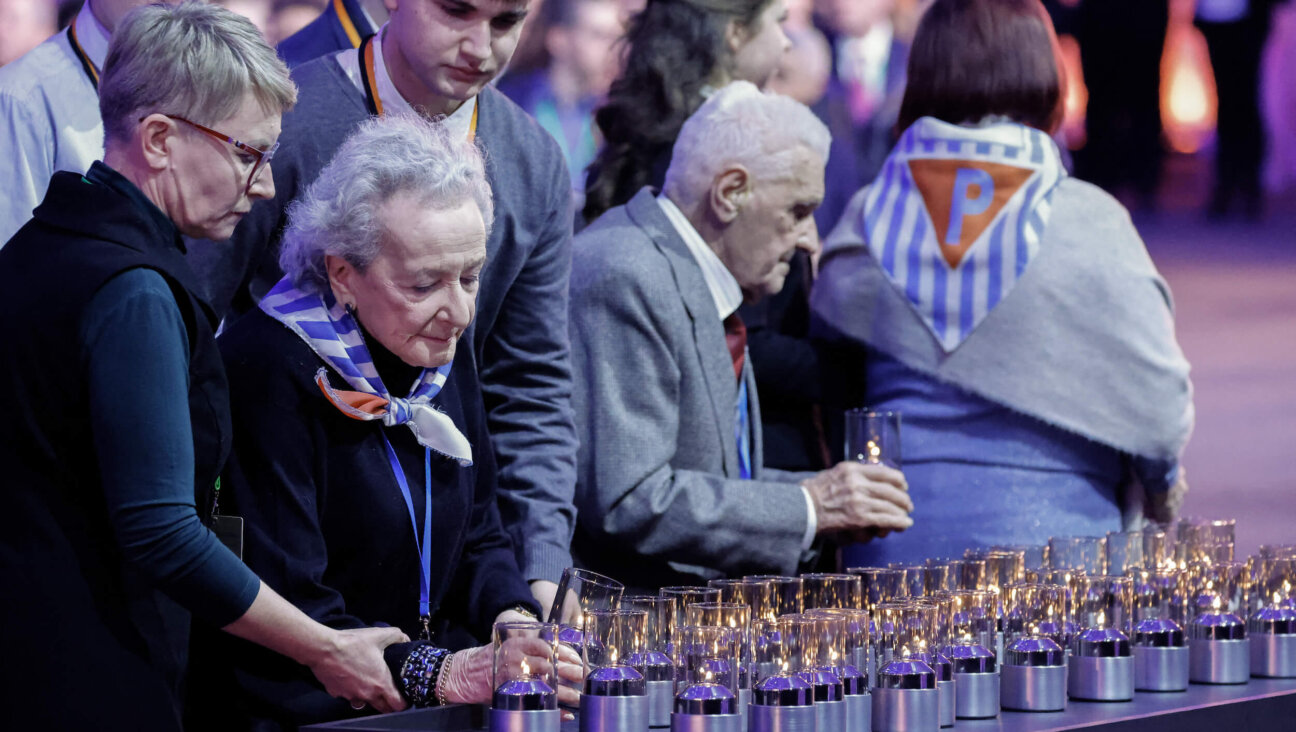Should I Give Up On Changing Israel from Within — and Take a Stand by Leaving?

A debate has been raging in the Israeli left over the past few weeks — primarily in the opinion pages of Haaretz and on my Facebook feed — about Israelis who are choosing to move away from Israel as a political statement.
Although these leftists make up only a tiny percentage of Israelis, their departure has hit a nerve. The veteran Israeli left-wing activist and founder of Gush Shalom, Uri Avnery, has called on them to return, arguing that leaving is a cop-out, that they are needed here. This has sparked a back and forth, with several younger Israelis writing that they are no longer willing to sacrifice their children’s lives for what they see as a dead-end country — and so, yes, they’re opting out.
Everywhere I turn these days, many of my peers have left, are leaving, are planning to leave or are talking about leaving. My family and I included. The reasons for leaving are always personal, and it’s hard to point to a specific political trend. But the discourse around leaving is indicative of a real crisis in the Israeli left regarding the inability to effect change, and the increasing sense that our ideals are unwanted and that we are outnumbered. Not just at the polls, but at the family dinner table, too. For me, this is not just about the normalization of racism and violence in the public sphere that goes along with the occupation, but about the fact that so many Israelis who identify as liberals are either ignorant of the state’s actions or complicit in them.
When I became active in the West Bank nearly a decade ago with the direct-action Arab-Jewish cooperative Ta’ayush, I witnessed and experienced many Israeli human rights violations and absurdities that profoundly changed my working assumptions and shaped my politics, instantly setting me apart from most Israelis. Whereas other Israelis spent their Saturdays resting at home or going to family gatherings, I spent them escorting Palestinians to their wells or their grazing fields while being confronted by settlers and soldiers. I would come back to the comforts of my life in Tel Aviv outraged that people could just sit in cafes with no clue what was being done in their name just a few miles away — or worse, that they just didn’t care. The sharp dissonance affected all aspects of my life and my interaction with friends, family members, everyone. It breeds a constant sense of despair and resentment.
A decade later, and five years since the “tent protests” that saw hundreds of thousands of Israelis out in the streets protesting the high cost of living without any mention of the disenfranchised Palestinian population in our midst, this sense of alienation has only intensified. Instead of gaining legitimacy in Israeli society, activist groups like Ta’ayush, Anarchists Against the Wall and Breaking the Silence, which came of age during the second intifada with the goal of exposing and opposing human rights violations, are now targets of state-sanctioned incitement; they are marginalized even more than they already were, and delegitimized.
Israel currently has the most right-wing government in its history, and “leftist” is a bona fide bad word whose definition just keeps broadening. An Israeli who never set foot across the Green Line but who protested in central Tel Aviv against Israel’s past two wars in Gaza is considered radical. A soldier who has fulfilled his military service and then speaks out against the actions he carried out is a traitor. A 2016 poll shows that 72% of Jewish Israelis believe Israel’s control over the Palestinian territories does not even constitute an “occupation.”
Under these circumstances, how can the left possibly hope to shift the discourse, much less end the occupation?
This is the question I am constantly grappling with, and it is the million-dollar question facing the Israeli left today. In 2005, Palestinians answered this question by calling for international pressure through boycott, and some Jews in Israel and abroad have joined them, believing that change is simply not coming from within. It shouldn’t be any surprise, then, that the boycott, divestment and sanctions movement, not local activism, has taken center stage in this era when it comes to opposing Israeli policies. The Israelis emigrating from the country are inadvertently part of the spirit of the boycott movement in the sense that they, too, have given up on the idea that change will come from within.
Although I feel a constant and growing sense of alienation from the majority of Jewish Israeli society, and this makes leaving seem more appealing, I also live a comfortable life here and am invested in this place. It’s home. But every time I walk from my house in Jaffa to the beach and dip my limbs into the open sea, I am sorely aware of all the Palestinians in the West Bank who don’t have this luxury, who have never seen the Mediterranean, or for whom the chance to visit is an extraordinary, one-time opportunity entirely dependent on the whims of the Israeli establishment. Every time I experience fear or anxiety about the increasingly violent, herd-mentality society my 2-year old is growing up in, I consider the Palestinian children who are stateless and roofless in Gaza.
We can’t live in a constant state of guilt. But even as Israeli leftists are increasingly persecuted, we have to recognize that we also enjoy a lot of privileges. And it’s precisely because of the privileges I enjoy here that I feel compelled to fight for those who lack them.
There are many ways to fight that fight, though. The question, then, is not whether to stay or to go. That choice is personal and will always be personal. The real question for me is how to have an impact and how to live a life that is true to my ideals.
Mairav Zonszein is an independent journalist, writer and translator based in Israel. She blogs at 972mag.com. Follow her on Twitter, @MairavZ
A message from our Publisher & CEO Rachel Fishman Feddersen

I hope you appreciated this article. Before you go, I’d like to ask you to please support the Forward’s award-winning, nonprofit journalism so that we can be prepared for whatever news 2025 brings.
At a time when other newsrooms are closing or cutting back, the Forward has removed its paywall and invested additional resources to report on the ground from Israel and around the U.S. on the impact of the war, rising antisemitism and polarized discourse.
Readers like you make it all possible. Support our work by becoming a Forward Member and connect with our journalism and your community.
— Rachel Fishman Feddersen, Publisher and CEO






















